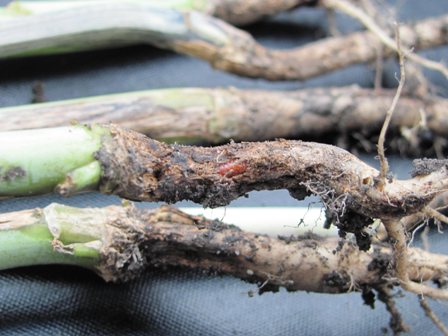Fungus fight saves farmers millions
 Scientists from the University of Melbourne and Marcroft Grains Pathology at Horsham have developed an extensive disease monitoring and management program which has prevented devastation from the blackleg fungal disease in canola crops, saving at least $18 million.
Scientists from the University of Melbourne and Marcroft Grains Pathology at Horsham have developed an extensive disease monitoring and management program which has prevented devastation from the blackleg fungal disease in canola crops, saving at least $18 million.
The Australian canola industry is under constant threat from the black leg fungus; the wind-born pathogen is responsible for the biggest losses to global canola crops each year. The monitoring and management program created by researchers at the University of Melbourne has gone a long way to preventing outbreaks since its inception.
Blackleg is a particularly tricky fungus, according to Professor Barbara Howlett from the University’s School of Botany, it is capable of evolving very quickly by gaining, losing or mutating genes at its sexual reproduction stage to overcome disease resistance genes, meaning it will likely never be totally eradicated.
The teams have created fact sheets with advice for growers on the best ways to avoid blackleg fungus. Advice includes measures such as planting new crops a greater distance from the previous years as well as changing breeds more routinely to stop blackleg evolution. Since the research was completed and farmers undertook preventative methods in 2012, a marked difference has been observed in the survival rates of old crops versus those cultivated with the new techniques in mind. Subsequent harvests now show the recommendations saved farmers at least $18 million in losses.








 Print
Print